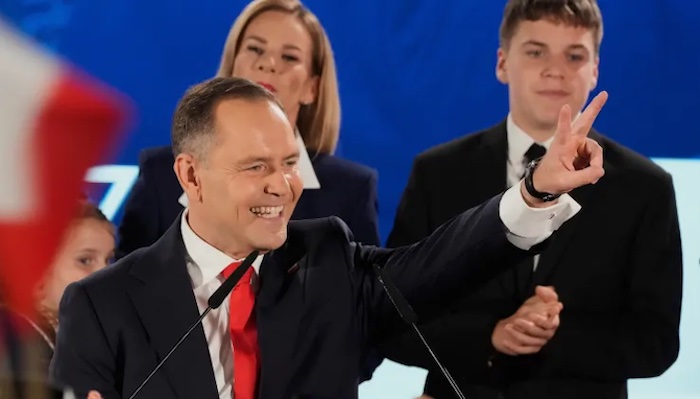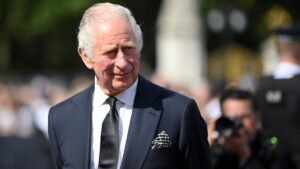In a surprising upset, conservative historian Karol Nawrocki has been elected president of Poland, narrowly defeating liberal rival and Warsaw Mayor Rafal Trzaskowski with 50.9% of the vote, according to final results released by the State Electoral Commission (PKW) on Monday.
The result marks a dramatic reversal from initial exit polls, which had indicated a slight lead for Trzaskowski, projecting him at 50.3% to Nawrocki’s 49.7%. Celebrating those early figures, Trzaskowski prematurely declared victory Sunday night, telling an ecstatic crowd, “We won—though the phrase ‘razor’s edge’ will forever enter the Polish political lexicon.” His wife, Malgorzata, added jokingly, “I’m close to having a heart attack.”
But Nawrocki urged supporters to stay optimistic. “Let’s not lose hope tonight,” he said. “We will win during the night… I believe that we will wake up tomorrow with President Karol Nawrocki.” He turned out to be correct.
At 42, Nawrocki is a relative newcomer to frontline politics but has deep ties to the conservative Law and Justice (PiS) party, which lost parliamentary power 18 months ago. His unexpected victory is seen as a morale boost for the party ahead of Poland’s 2027 parliamentary elections.
Although the Polish presidency is largely ceremonial, the office carries a powerful veto authority—one Nawrocki is expected to use to challenge Prime Minister Donald Tusk’s pro-European agenda. Tusk’s centrist coalition lacks the supermajority in parliament needed to override presidential vetoes, making Nawrocki a potential roadblock to key legislative reforms.
Nawrocki has campaigned on preserving traditional Catholic values, national sovereignty, and a cautious approach to European integration. While he supports continued aid to Ukraine, he has voiced opposition to fast-tracking the country’s accession to NATO or the EU amid ongoing Russian aggression.
The election highlighted deep divisions within Poland over the country’s direction in Europe. Trzaskowski, a former minister for European affairs, championed closer ties with Brussels and alignment with Germany and France as part of Prime Minister Tusk’s broader EU integration strategy.
Nawrocki, by contrast, positioned himself as a defender of national identity and a critic of EU overreach. He has spoken out against Brussels’ climate and migration policies and opposes further transfers of national authority to EU institutions. His populist appeal was bolstered by his background as an amateur boxer and footballer, and a social media campaign that emphasized patriotism and Polish traditions.
Nawrocki also made headlines during the campaign with a high-profile visit to Washington, where he posed for a photo with former U.S. President Donald Trump in the Oval Office. The image, shared widely across nationalist media, helped solidify his support among conservative voters back home.
As Poland prepares for a new political chapter, Nawrocki’s presidency promises to reshape the balance of power in Warsaw—and could set the tone for the country’s future relationship with the European Union.



























